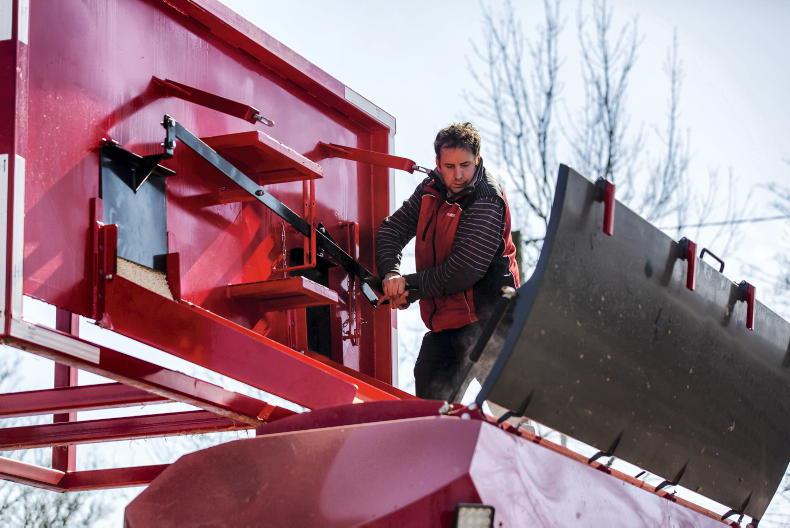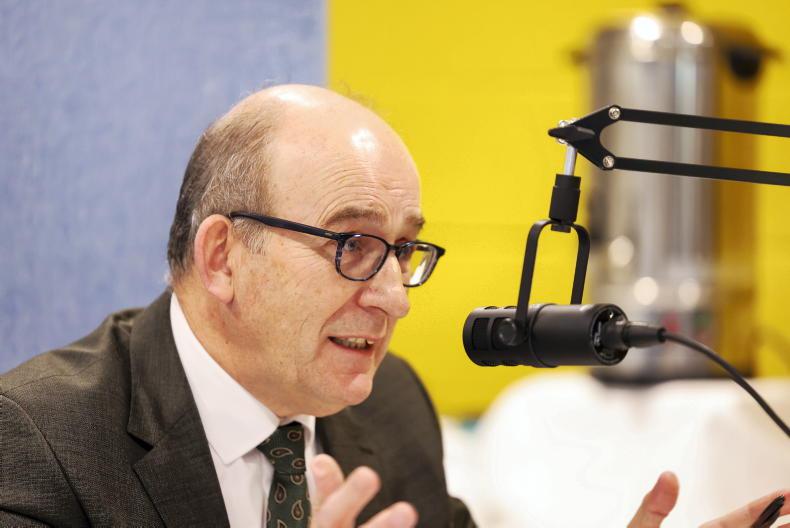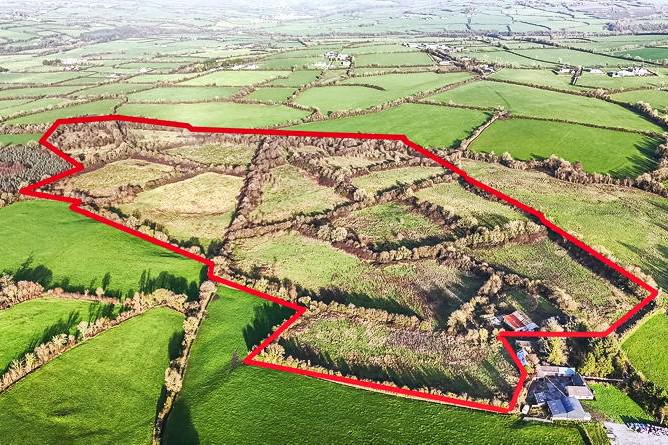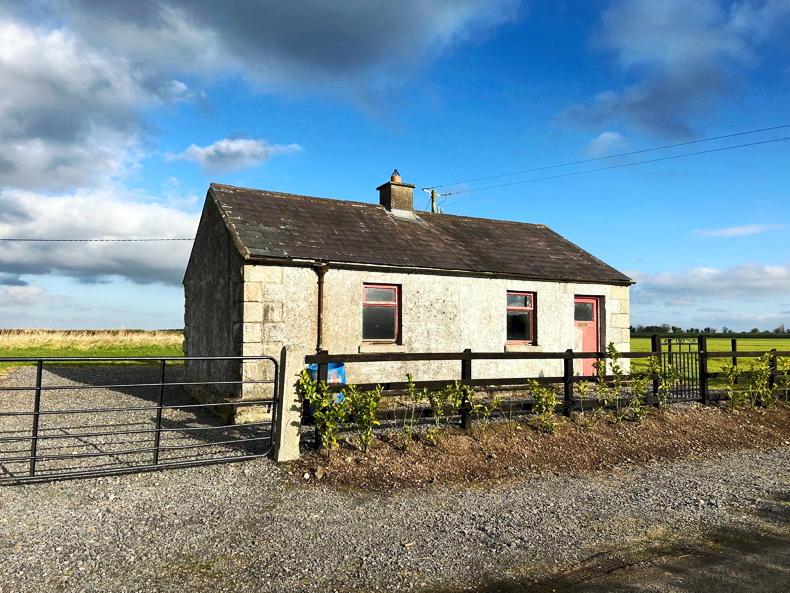The second tranche of the €100m Capital Investment Scheme for the processing and marketing of agricultural products was awarded last week.
The Brexit Adjustment Reserve (BAR)is expected to provide a major chunk if not all the €100m funding, and is administered by Enterprise Ireland on behalf of the Departments of Agriculture Food and the Marine and Enterprise, Trade and Employment (DETE).
Awards of €70m were made in November 2021, leaving €30m for a second round of applications. Applications opened on 12 September 2022 and closed on 12 November.
Grant qualifying rules
Enterprise Ireland provided interested parties with a briefing on the criteria for making a successful application to the fund, as well as publishing a detailed explanatory document on eligibility and how applications would be scored.
The objective of the scheme was to “strengthen and improve resilience of primary food processing companies” as a “transformative capital investment programme is an important element of the sector’s response to an increasingly challenging external trading environment”.
In plain English, that means spending money on the business to be able to compete in global markets.
Factories were provided with a menu of projects that were considered eligible for support including:
Capital investment to enable the business to have a targeted product or market diversification strategy that wouldn’t happen without this grant.Projects that would deliver an increase in output and value-added.Projects between €1m and €25m that involved processing beef, dairy, pigmeat, sheepmeat and poultry food products with grant aid to a maximum of 30% for eligible expenditure. Products that included these as ingredients were also eligible.Projects had to comply with Irish and EU environmental standards, plus minimum standards of hygiene and animal welfare and not be in receipt of other funding.
The scheme was not supporting projects that solely increased processing capacity and applicants had to be members of Origin Green or the equivalent.
Assessing applications
It was made clear that it was a competitive process and therefore the applicants that could best demonstrate that they met the criteria would be the winners.
Applications were scored across six weighted categories with a maximum total of 100.
The highest scoring category with 25 marks was for investment that would add value and/or broaden markets that the product was sold to. In particular, applicants were asked to show that investment in buildings and equipment would add value and enable processing for new markets, not just to enable increased processing capacity.
Environmental impact was the next highest scoring category with up to 20 marks out of the total 100 allocated and a requirement to achieve at least 10 marks to be considered.
The “vulnerability to the external trading environment” category was also allocated 20 marks, and while the word Brexit isn’t mentioned, it is clear that references to terms such as “external shocks, logistics and trade barriers” were all written with Brexit in mind.
The category titled “need for money” was allocated 15 marks and this refers to the applicant being able to show that without the grant aid, the business could not afford to complete the project from its own resources.
The “value for money category” also carried 15 marks, where the applicant had to show that the project would benefit the wider Irish economy and not just the business.
The final category with five marks was for the applicant to show that it had a track record for delivery.
Brexit Adjustment Reserve
With these grant allocations from a scheme announced on 28 December 2020, just after the EU-UK Brexit deal was announced and Brexit coming into effect on 1 January 2021, there was an expectation that the money would come from the Brexit Adjustment Reserve Fund (BAR).
However when asked by the Irish Farmers Journal about the source of the funding, Enterprise Ireland said: “In the first instance, funding for the Capital Investment Scheme for the processing and marketing of agricultural products is provided through Departmental funding to Enterprise Ireland.
“As a proportion of the projects approved for funding are a response to Brexit there may be scope to recoup a proportion of funding under the Brexit Adjustment Reserve subject to the required criteria being met.”
In this event it is not clear how much BAR money or what factories, if any, will receive BAR funding under the scheme.
Whatever about the procedure, there is a growing risk that the BAR will not be fully used before the end of this year. The Government needs to secure a derogation from the EU to carry any unspent funding over to next year.
Securing this level of financial support for the dairy and meat processing industry is a notable success for the lobby organisations. A well-invested processing sector is vital to maximise the value of produce coming off Irish farms. Farmers will now be watching to see if this investment leads to Irish farmgate prices improving their benchmark prices when compared with Britain and main EU markets.
A note of concern is that this investment in processing coincides with a time when Government investment in farming is concentrated on measures that reduce output, so will there be enough raw material to maintain processing?
Certainly recent beef factory prices won’t do anything to encourage production.
The second tranche of the €100m Capital Investment Scheme for the processing and marketing of agricultural products was awarded last week.
The Brexit Adjustment Reserve (BAR)is expected to provide a major chunk if not all the €100m funding, and is administered by Enterprise Ireland on behalf of the Departments of Agriculture Food and the Marine and Enterprise, Trade and Employment (DETE).
Awards of €70m were made in November 2021, leaving €30m for a second round of applications. Applications opened on 12 September 2022 and closed on 12 November.
Grant qualifying rules
Enterprise Ireland provided interested parties with a briefing on the criteria for making a successful application to the fund, as well as publishing a detailed explanatory document on eligibility and how applications would be scored.
The objective of the scheme was to “strengthen and improve resilience of primary food processing companies” as a “transformative capital investment programme is an important element of the sector’s response to an increasingly challenging external trading environment”.
In plain English, that means spending money on the business to be able to compete in global markets.
Factories were provided with a menu of projects that were considered eligible for support including:
Capital investment to enable the business to have a targeted product or market diversification strategy that wouldn’t happen without this grant.Projects that would deliver an increase in output and value-added.Projects between €1m and €25m that involved processing beef, dairy, pigmeat, sheepmeat and poultry food products with grant aid to a maximum of 30% for eligible expenditure. Products that included these as ingredients were also eligible.Projects had to comply with Irish and EU environmental standards, plus minimum standards of hygiene and animal welfare and not be in receipt of other funding.
The scheme was not supporting projects that solely increased processing capacity and applicants had to be members of Origin Green or the equivalent.
Assessing applications
It was made clear that it was a competitive process and therefore the applicants that could best demonstrate that they met the criteria would be the winners.
Applications were scored across six weighted categories with a maximum total of 100.
The highest scoring category with 25 marks was for investment that would add value and/or broaden markets that the product was sold to. In particular, applicants were asked to show that investment in buildings and equipment would add value and enable processing for new markets, not just to enable increased processing capacity.
Environmental impact was the next highest scoring category with up to 20 marks out of the total 100 allocated and a requirement to achieve at least 10 marks to be considered.
The “vulnerability to the external trading environment” category was also allocated 20 marks, and while the word Brexit isn’t mentioned, it is clear that references to terms such as “external shocks, logistics and trade barriers” were all written with Brexit in mind.
The category titled “need for money” was allocated 15 marks and this refers to the applicant being able to show that without the grant aid, the business could not afford to complete the project from its own resources.
The “value for money category” also carried 15 marks, where the applicant had to show that the project would benefit the wider Irish economy and not just the business.
The final category with five marks was for the applicant to show that it had a track record for delivery.
Brexit Adjustment Reserve
With these grant allocations from a scheme announced on 28 December 2020, just after the EU-UK Brexit deal was announced and Brexit coming into effect on 1 January 2021, there was an expectation that the money would come from the Brexit Adjustment Reserve Fund (BAR).
However when asked by the Irish Farmers Journal about the source of the funding, Enterprise Ireland said: “In the first instance, funding for the Capital Investment Scheme for the processing and marketing of agricultural products is provided through Departmental funding to Enterprise Ireland.
“As a proportion of the projects approved for funding are a response to Brexit there may be scope to recoup a proportion of funding under the Brexit Adjustment Reserve subject to the required criteria being met.”
In this event it is not clear how much BAR money or what factories, if any, will receive BAR funding under the scheme.
Whatever about the procedure, there is a growing risk that the BAR will not be fully used before the end of this year. The Government needs to secure a derogation from the EU to carry any unspent funding over to next year.
Securing this level of financial support for the dairy and meat processing industry is a notable success for the lobby organisations. A well-invested processing sector is vital to maximise the value of produce coming off Irish farms. Farmers will now be watching to see if this investment leads to Irish farmgate prices improving their benchmark prices when compared with Britain and main EU markets.
A note of concern is that this investment in processing coincides with a time when Government investment in farming is concentrated on measures that reduce output, so will there be enough raw material to maintain processing?
Certainly recent beef factory prices won’t do anything to encourage production.








SHARING OPTIONS